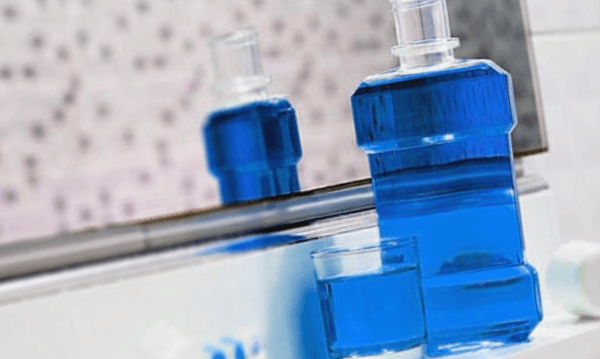
Mouthwash
is a product commonly used for daily oral hygiene. Despite what many
may think, this product is essential to keep your mouth health at bay.
We explain the reasons and how to use it correctly.
The
use of mouthwash or mouthwash in the daily routine of oral hygiene is
very important in the first place because teeth account for only 25% of
the oral cavity. It goes without saying that brushing your teeth at
least twice a day for two minutes is the fundamental basis for keeping
your teeth healthy. As well as the use of dental floss, since brushes
are not 100% effective for interproximal hygiene since there are areas
of the teeth that none of them reach.
Despite
brushing and flossing, the other 75% of the mouth is exposed to
bacteria and the harmful effects of plaque. If it is not fought
effectively, you run the risk of getting cavities or periodontal
diseases such as gingivitis. In addition, the use of mouthwash helps to
regulate the pH of the mouth and provides fresh breath.
Hence
the great importance of the daily use of a mouthwash, although it
should be borne in mind that it will never replace a toothbrush or
floss. In fact, to enjoy a totally healthy mouth, it is essential to
follow the steps to achieve a perfect toothbrush.
The Best Mouthwash for Everyone
There
are many types of mouthwash on the market for every type of mouth or to
prevent different pathologies. There are anti-caries, specific for bad
breath and also specific to fight against gum disease, among others.
- Those that are indicated for fighting cavities contain fluoride.
- Specific mouth rinses to care for gums and fight bad breath contain triclosan, as well as mint and other aromatic herbs.
- There are also specific mouthwashes for children or people who use orthodontics that does not have alcohol in their composition.
- There are also specific mouthwashes on the market to combat dry mouth that contain xylitol, betaine or aloe vera.
- And there are also some that must be prescribed beforehand by the dentist and are not for daily use, which fights against gum diseases such as gingivitis; these carry chlorhexidine.
If you have a healthy mouth, it is best to use a mouthwash that contains fluoride and, if possible, does not contain alcohol.
How to use Mouthwash Correctly
Visit us at our official website to read the full note
Comentarios
Publicar un comentario